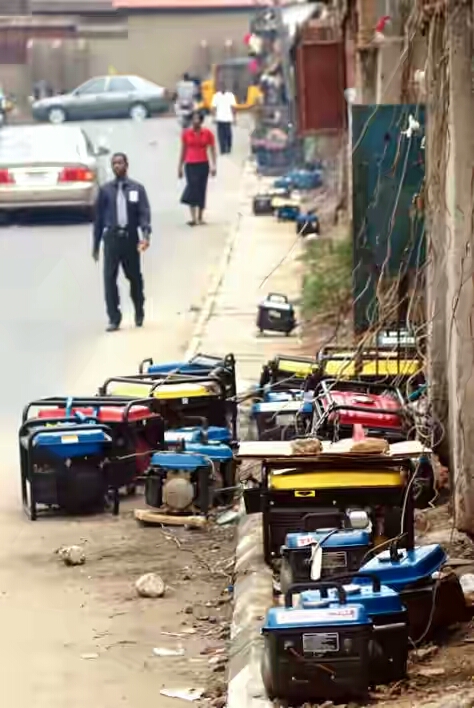“A few days into the new month after a 10 day blackout, Abuja Electricity Distribution Company (AEDC) started giving us power more regularly. It was almost becoming as though they didn’t want to keep the power to themselves anymore. Naturally, I was pleased at the turn of events. Who knew things could get better so fast? I nearly ran to testify to the change in AEDC as many had done, I was on the verge of it when my inner man halted me in my tracks.
My inner man said: ‘Son, tarry yet in giving the power guys your praise. At least until you’ve paid the bills.’ I concurred. Upon paying the bills, the power supply dropped from approximately 8 hours to 6 hours, yesterday was 4 hours. They just brought light for about 10 minutes, and somehow sure that’s that for today. – Immanuel Galadima (2015)
The forgoing is a compilation of Immanuel’s testaments in his reaction to the supply of electricity to his home. Well, that’s the present day reality in Nigeria, you pay for electricity bills and yet get nothing in return for the service or utility being paid for.
“Once upon a time, there is Nigeria. Nigeria has a lot of people, over 170 million of them. These people need to move up and down to satisfy their individual daily needs and obligations. Thus traffic is born.” – (Shaibu, M. Lawal, 2015.)
Drawing attention from this view as persuasively and objectively presented by Shaibu, it can be said that not only will Nigerians engage in commuting, there will also be the question of powering automobiles, machines, street lights, office building and residential lighting fixtures etcetera, hence the need for energy is born (renewable or non-renewable.) Only India has more people without electricity than Nigeria, despite the fact that Nigerians spend some $5 billion annually on fuel for noisy, dirty diesel generators or for even more polluting charcoal and still most people live in the dark.
Not long ago, I said “If you don’t have a power generating set living in Nigeria, then your hustling hasn’t started yet.” This implies that any Nigerian who does not own a power generating set no matter the size is yet to begin his/her struggle to economic/financial independence and livelihood, hence such a person can be regarded and referred to be in the ‘poverty queue.’
Little wonder Nigeria wears the crown as the world’s largest importer of diesel and petrol generators, yet there are kerosene lanterns and oil wicks to light so, we clearly are architects of pollution in our humble quest to generate electricity and provide lights in our homes.
Corroborating this view, Dayo Oketola posited that Nigerians rely heavily on generators which N3.5tn annually and a whooping N17.5tn in the past five years.
In Nigeria, as much as electricity supply is concerned, the better adjective to describe it would be ‘erratic and epileptic’. Electricity supply is like ‘gold’.
No doubt, an aerial panorama night view of Nigeria shows but darkness extending all over her towns and cities, so much so that President Muhammadu Buhari’s inaugural speech on his swearing in ceremony on the 29th May, 2015 revealed that “no single cause can be identified to explain Nigerian’s poor economic performance over the years than the power situation.
It is a national shame that an economy of 180 million generates only 4,000MW, and distributes even less. Continuous tinkering with the structures of power supply and distribution and close on $20billion expended since 1999 have only brought darkness, frustration, misery and resignation among Nigerians.”
The president has said it all, and indeed, that sums up the status-quo of power supply in Nigeria. But in all these, there are, yet various options for clean, cheap and inexhaustible sources of electricity; every country needs it, Nigeria needs it the most.
However, existing investments in power grids built on fossil fuel keeps Nigeria tied to costly and polluting energy sources. Perhaps that explains why Nigerians are spending five time to ten times the amount every single day to generate their own electricity when compared to wind and solar.
In spite of that, the prospect for renewable energy is immense, a transition from the use of generators to solar power is cheaper because, the cost of petrol is higher than that solar, and solar panels are also becoming cheaper every day.
Many industrialized nations have installed significant solar power capacity into their grids to supplement or provide an alternative to conventional energy sources. Similarly, a number of less developed/industrialized nations have turned to solar to reduce dependence on expensive imported fuels, typical examples are Morocco, South Africa, Ghana, and Kenya. Studies have shown that the distribution of solar resources across Africa is fairly uniform, with more than 85% of the continents landscape receiving at least 2,000 kWh/(m² year).
Therefore, Nigeria can reap from the benefits accrued from solar resources, hence Nigerians can invest more in small-scale modular solar power installations in communities, university campuses, shopping complexes, office buildings and even at the household levels; rather than flooding every nook and cranny with diesel and petrol generators.
The National Coordinator Renewable Energy Programme, Engr. Bahijjatu Abubakar once said, “Nigeria has a beautiful flag that is green-white, and green so we have double responsibility to going green!” if so, For the sake of climate change, to reduce indoor and outdoor pollution, for a revamp in the energy sector, and at the same time for national development and job creation, Solar power is our best bet.



Leave a Reply